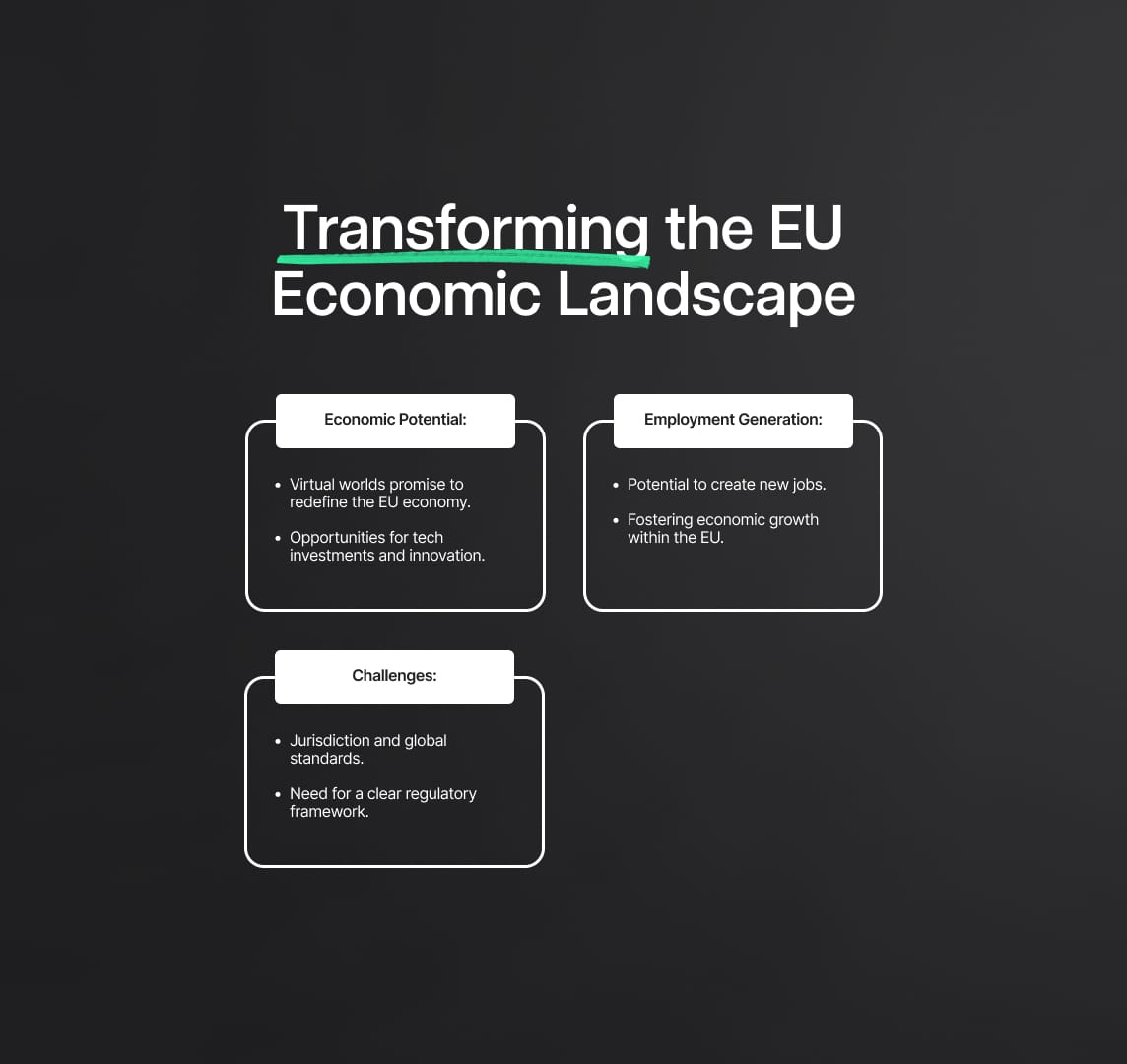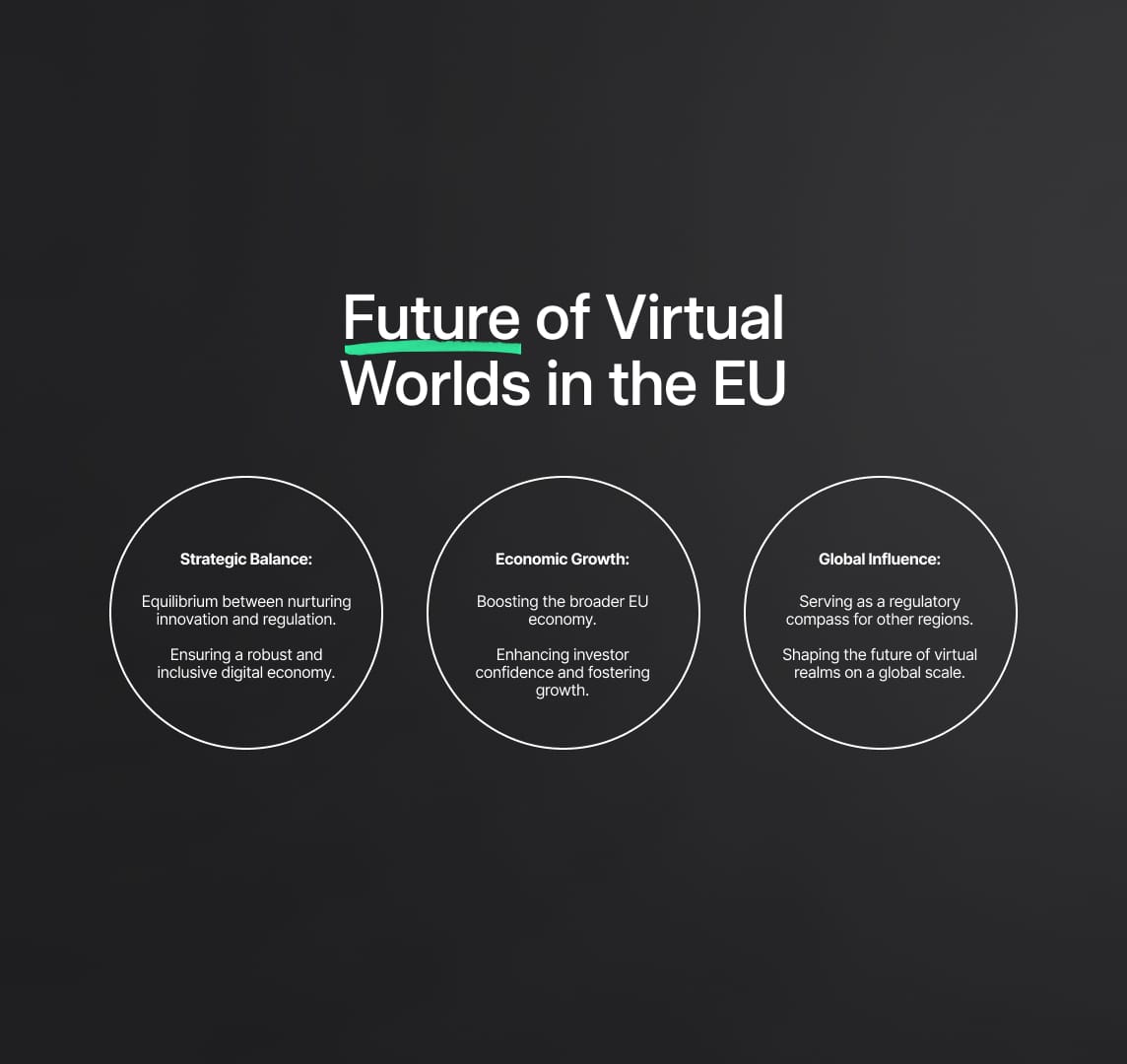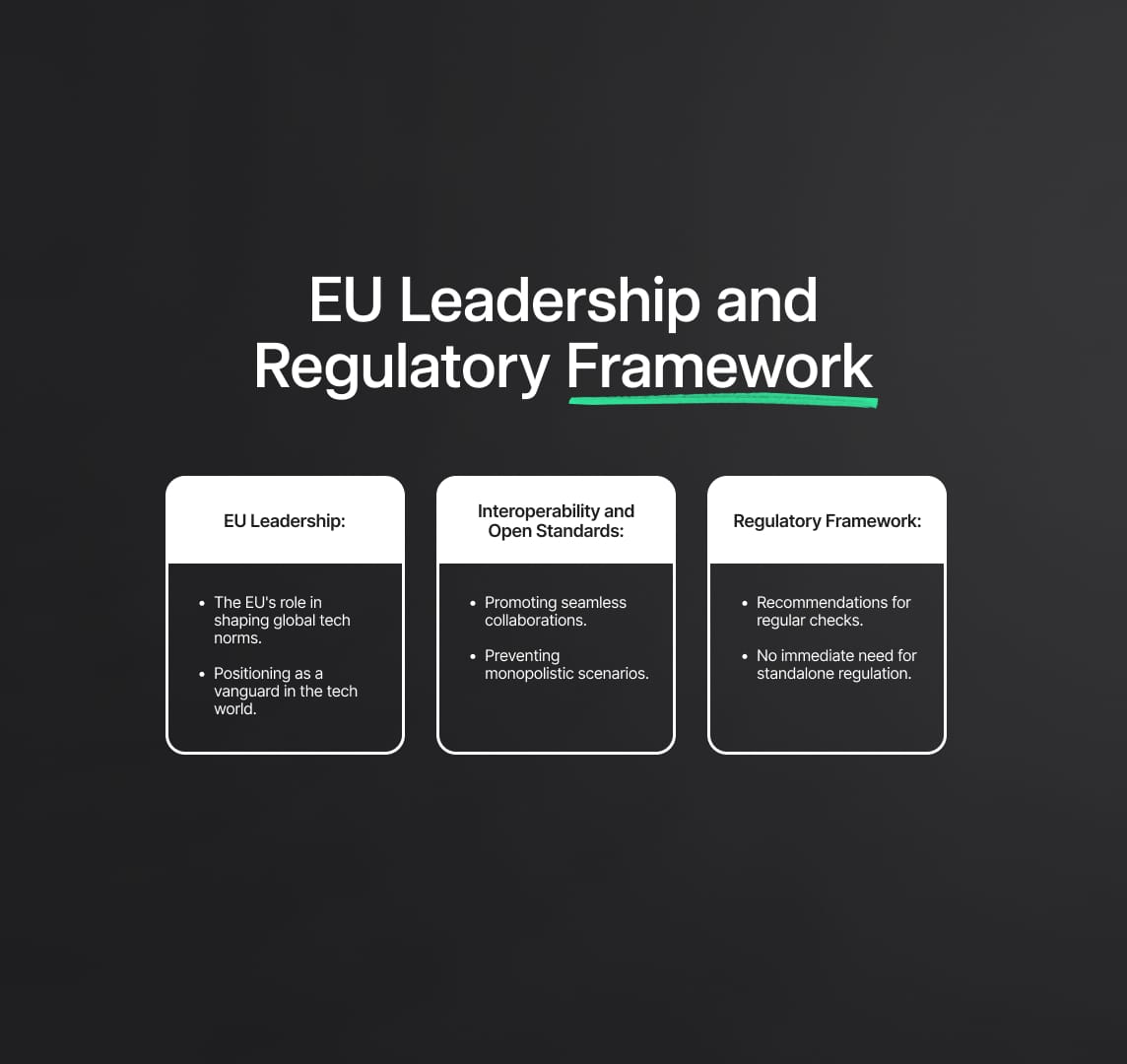Policy Implications for Virtual Worlds in EU Single Market
Virtual worlds promise to redefine the EU's economic landscape. The IMCO report highlights the transformative potential of these digital realms within the single market. While opportunities abound, challenges like jurisdiction and global standards arise.

Opportunities, Risks and policy implications of Virtual Worlds in the Single Market

The Committee on the Internal Market and Consumer Protection (IMCO) is developing a report on the opportunities, risks, and policy implications associated with virtual worlds in the single market. This initiative, shared widely on social media platforms like Twitter, Facebook, and LinkedIn, aims to present a comprehensive assessment of the burgeoning realm of virtual worlds and their potential impact on the EU's single market. The report comes on the heels of the Commission's communication on virtual worlds dated 11 July 2023. It acknowledges the vast economic potential of virtual worlds but also identifies the need for a clear regulatory framework to support their development within the context of the digital single market. The report also calls for EU leadership and advocates for interoperability and open standards to prevent monopolistic scenarios. While regular regulatory checks are recommended, the report does not see the immediate need for standalone regulation specific to virtual worlds.
EU's Policy Implications and Future Developments for Virtual Worlds

The dawn of virtual worlds promises to reshape our understanding of economic prosperity, and no entity is poised to play a more pivotal role than the European Union. According to a recent report by the Committee on the Internal Market and Consumer Protection (IMCO), the potential of these digital realms within the single market is vast. This groundbreaking analysis, which has been resonating across social media platforms like Twitter, Facebook, and LinkedIn, offers an in-depth exploration of the intertwining between the digital universe and the EU's single market.
Beyond the confines of social media, the real transformative power of virtual worlds lies in their potential to rejuvenate the single market. Their evolution heralds unprecedented opportunities for tech investments, fostering innovation, generating employment, and potentially ushering in a new era of EU-driven economic growth. However, as with every golden opportunity, there come challenges. A significant number of influential players in the virtual domain are stationed outside the EU. This geographic spread raises critical questions about jurisdiction, regulation, and the need for universally accepted standards. Such norms, crafted with precision, can level the playing field, promoting fairness and thwarting monopolistic inclinations.
The EU, with its rich legacy of leadership, seems destined to spearhead this digital movement. The IMCO report amplifies this sentiment, suggesting that the European Union could solidify its position as a vanguard in the tech world, wielding influence that could shape global tech norms. Furthermore, by championing interoperability and open standards, the EU could catalyze seamless collaborations, weaving a tightly integrated digital single market. This holistic approach stands to yield a digital economy that's not just robust but also inclusive and dynamic.
A commendable takeaway from this IMCO analysis is its balanced perspective on regulatory frameworks for virtual worlds. Striking the right equilibrium between nurturing innovation and ensuring regulation is pivotal. It not only sets the European Union as a trendsetter but could also serve as a regulatory compass for other global regions exploring the vastness of virtual realms.
For businesses, investors, and tech enthusiasts eyeing the digital horizon, this is a clarion call. The intersection of virtual worlds and the EU's visionary approach is set to redefine economic paradigms. As we inch closer to this new frontier, staying informed and adaptable is no longer a luxury—it's a necessity.

Read More

Reduce your
compliance risks

